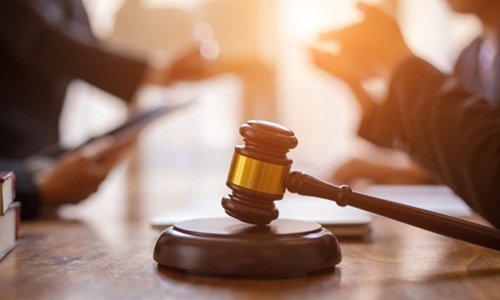People get caught in massage parlor prostitution cases even when they had no plan to do anything illegal. Sometimes the situation happens so fast that a person does not even understand what is going on. Because of this, the whole case becomes stressful, and the person feels confused about what to do next.
In the United States, the laws on prostitution are taken very seriously, and even a small misunderstanding during a police operation can place someone under suspicion and leave them facing serious legal consequences.
This is why knowing the legal consequences and understanding how a lawyer helps becomes very important and helpful in tackling such situations.
Legal Consequences

Prostitution-related offenses often lead to heavy fines, permanent criminal records, probation, and even jail time in most of the states. And if the case involves and gets reported as accusations of running or assisting an illegal business, then the penalties may increase even more.
For non-citizens, there will also be immigration-related problems. Remember, a conviction will have a lifelong effect; it can affect someone’s job, reputation, and other future opportunities. The consequences are really serious, and if one gets arrested for this charge, they will definitely need a strong legal defense from the beginning.
Why These Cases Are Complicated
Massage parlor cases are more complicated than regular ones. Many times, people are present at the wrong place at the wrong time. Undercover police operations can also create confusion because officers act like customers, and the situation may look different from what actually happened.
Cultural misunderstandings, language differences, unclear communication, and assumptions can all affect the case. This is why a simple mistake or a misunderstood action can turn into a serious charge. A lawyer helps clear these misunderstandings and explains the correct story.
5 Ways a Lawyer Helps Build a Strong Defense
1. Examining how the police conducted the investigation
A lawyer first checks if the police followed the correct procedure from the start. Because many massage parlor cases come from undercover operations. If the officers crossed any legal limits or forced someone into saying or doing something, the lawyer uses this and can challenge those actions. Any mistake by the police weakens the prosecution’s case.
2. Challenging entrapment
Sometimes an undercover officer may pressure and convince a person to agree to something they never intended to. This is called entrapment. A lawyer studies the communication between the officer and the accused. If the lawyer proves that the person did not willingly participate and was pushed into it, the charges may be reduced or dismissed.
3. Proving lack of intent
Many people working in or visiting a massage parlor may not know about any illegal activity happening there. A lawyer explains the person’s real intention and shows that there was no involvement in prostitution. By this they make sure the court understands the real purpose of the visit to the place.
4. Identifying weak or misleading evidence
Sometimes the police rely on unclear messages, incomplete videos, or assumptions. A lawyer reviews all evidence carefully. They check:
- If the evidence clearly proves any illegal act
- If the communication truly indicates prostitution
- If the situation was misunderstood
If the produced evidence is really weak and lacks support, the lawyer uses this to protect the accused from false, exaggerated claims.
5. Negotiating charges and protecting future options
Even if the case is strong, a lawyer helps by negotiating reduced charges or alternative programs. They try to avoid a permanent criminal record by pushing for options like education programs or community service. This helps the person move forward without long-term damage to their future.
Professional help is really important
Massage parlor prostitution cases often involve misunderstandings and assumptions. So, without proper legal support, a person may say something wrong randomly or accept a charge that harms their future. A lawyer knows the law and the common mistakes in these cases. With their help, the person can protect their rights and present the correct story confidently.
Key Takeaways
- A lawyer checks if the police followed proper procedures; if not, use it as a defense strategy.
- The legal professional challenges entrapment and proves lack of intent.
- They review evidence and expose weak points.
- A lawyer helps reduce charges and protect future opportunities.

Our dedicated team gathers information from all the reliable sources to make the law accessible and understandable for everyone. We provide the latest legal news stories from across the country, delivered straight to you.
